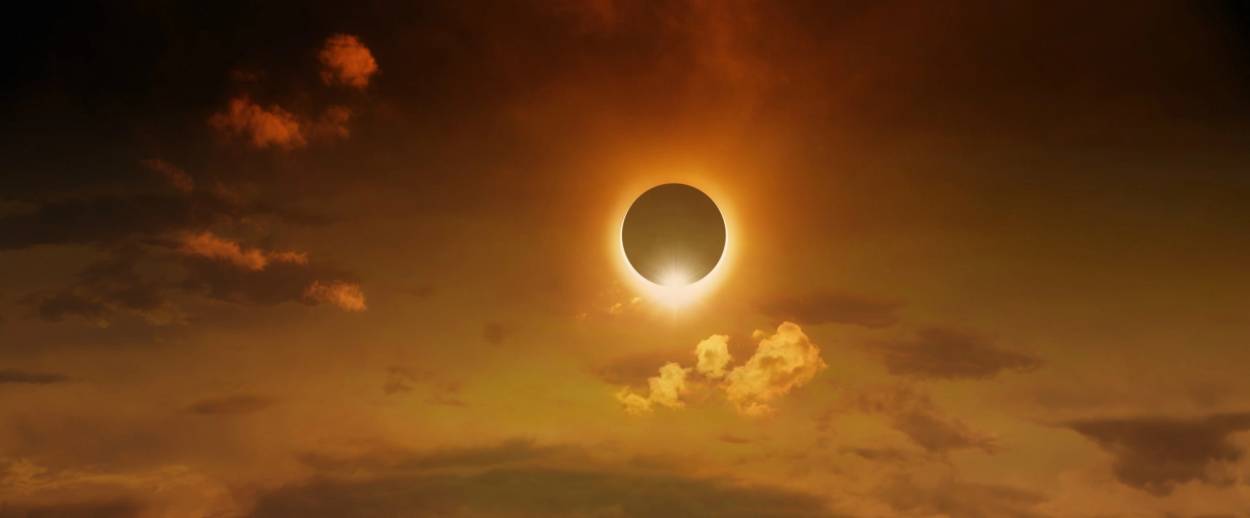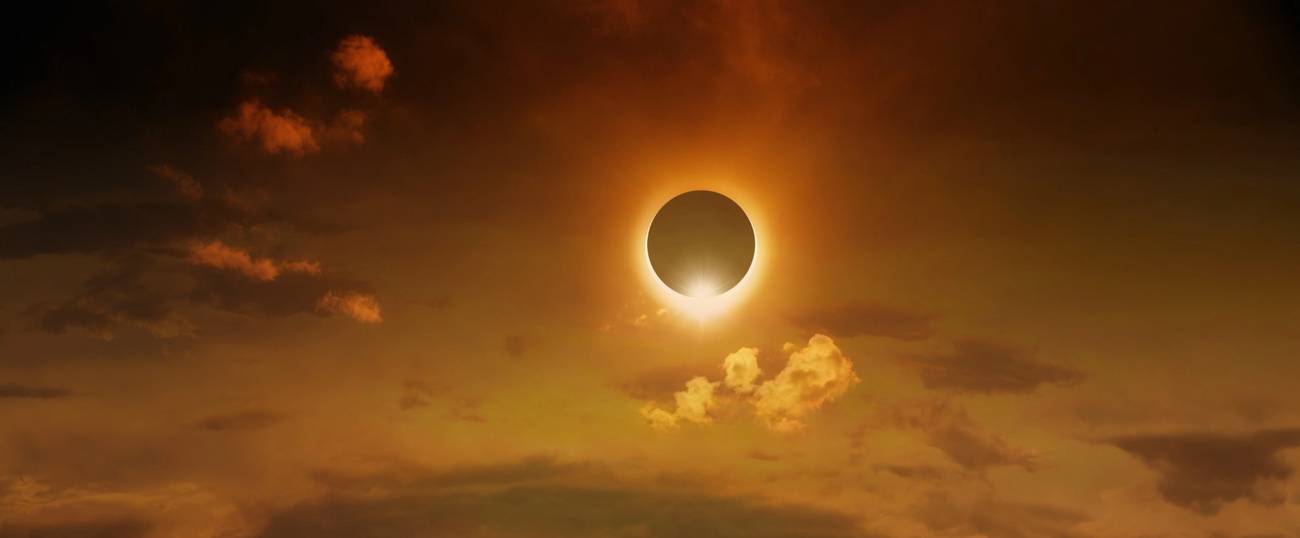Hey, Nazis: The Solar Eclipse Is God’s Way of Warning You
No, really: It’s right there in the Talmud




Today, from 9:05 a.m. Pacific Time to 4:09 Eastern, the United States will be treated to a solar eclipse for the first time in 38 years. And while we’ll all be looking up to glimpse the celestial wonder, anyone harboring ill-will towards the Jews better beware: a solar eclipse is a very bad omen for anti-Semites.
It’s right there in the Talmud. Tractate Sukkah 29a brings us this nugget from Rabbi Meir: “When the heavenly lights, i.e. the sun and the moon, are eclipsed, it is a bad omen for the enemies of the Jewish people, because they are experienced in being beaten. This is similar to a teacher who comes to the school with a strap in his hand. Who worries? The child who is accustomed to being beaten each and every day.”
In other words, when they see the shadow falling on the sun, our foes should stop and reflect that no plot to exterminate the Jews ever ended well for the perpetrators.
But that doesn’t mean that we should rejoice: According to a new and fascinating article by Dr. Jeremy Brown in Hakirah: The Flatbush Journal of Jewish Law and Thought, it’s precisely the ominous nature of the eclipse that drove some rabbis to warn against saying a berachah, or blessing, when the sky goes dark.
Menachem Mendel Schneerson, for example, the Lubavitcher Rebbe, argued that when we see the eclipse, we should pray instead for those who’ve stirred God’s wrath. “There is a well-established principle that it is forbidden to institute a blessing that is not mentioned in the Talmud,” he wrote. “And some say that the reason that no blessing was instituted is because the eclipse is a bad omen. To the contrary, it is important to pray for the omen to be annulled, and to cry out without a berachah.”
And if all this strikes you as too much extrapolation on what is essentially a natural occurrence, you’d probably find much to dislike about the Talmud’s explanation of why solar eclipses happen in the first places. “The Sages taught that on account of four matters the sun is eclipsed,” reads Tractate Sukkah. “On account of a president of the court who dies and is not eulogized appropriately, and the eclipse is a type of eulogy by Heaven; on account of a betrothed young woman who screamed in the city that she was being raped and there was no one to rescue her; on account of homosexuality; and on account of two brothers whose blood was spilled as one.”
What’s the common thread tying these four together? Rashi, Dr. Brown wrote, asked himself the very same question. His answer? “I do not know of an explanation for this.”
So as you look up tomorrow, you could see the eclipse as a metaphor for sin, as the famous Maharal of Prague, he of the Golem fame, had done. You could see it as the universe taking its course. Or you could see it as an invitation, coming right at the cusp of the Hebrew month of Elul, which begins on Tuesday, to reflect and repent and change your ways. Whatever you decide, at least get the right pair of glasses.
Liel Leibovitz is editor-at-large for Tablet Magazine and a host of its weekly culture podcast Unorthodox and daily Talmud podcast Take One. He is the editor of Zionism: The Tablet Guide.